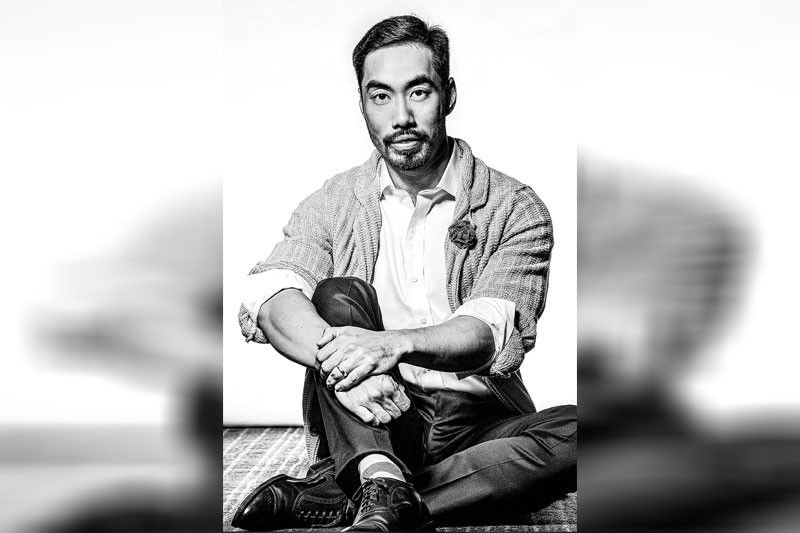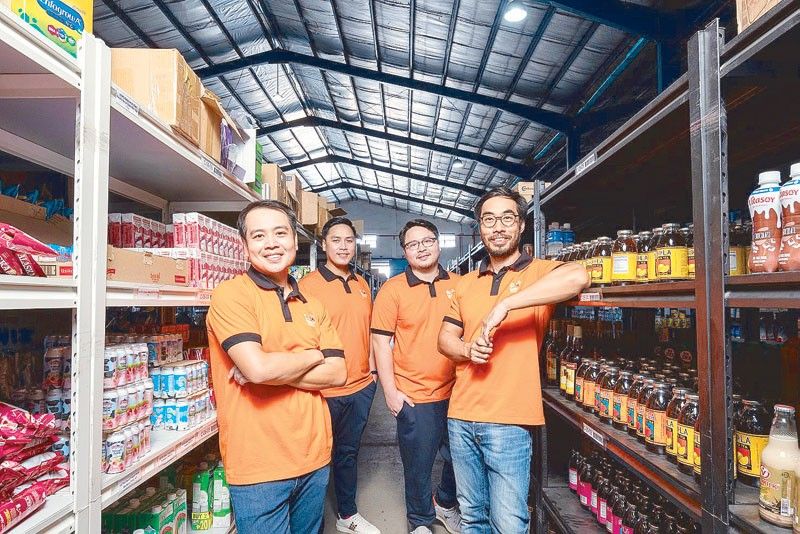Mr. Startup

Some men are challenged by taking fledgling businesses over the hump and on to the top of the mountain; some actually like starting the business from scratch, taking them over the hump and up the mountain, sparing themselves none of the heavy lifting.
Brian Cu, who is widely admired within Asia’s entrepreneurial and tech circles as the co-founder of Grab Philippines, likes to start from scratch. From an idea.
Grab grew exponentially, becoming one of Southeast Asia’s leading ride-hailing platforms. Before that, from 2010 to 2013, Cu founded Zalora Philippines, an online retail app that grew into the largest online fashion retailer in the country. He then went on to establish Gojek, a transportation app that became the first and only Southeast Asian startup to be included under Forbes’ list of “Companies That Changed the World.”
He left Grab when he was ahead, eager for another startup, and founded SariSuki in May 2021. Why does he like startups, and go through the teething stages all over again?
“Why not?” Cu replies. “My grandfather started his own company. He was an immigrant from China. So he was, I guess, forced to a certain extent to really be on his own. And very early on, what I liked about (startups) was the independence.”
“Independence was what lured me in. And then what hooked me was also independence, how you’re able to shape the future of your company, how you’re able to shape the future of the culture of your company, how you want to be able to shape the workplace that you’re in. So it’s a different kind of independence, not personal independence, but independence in how you’re able to create. So it’s a bit ‘with great-power-comes-great-responsibility kind of thing.’ You become a custodian of your investors’ money; they put their trust in you. And you have a duty to not just your customers, but also your investors that you run the company properly.”

After Grab, Cu told himself, “I have two more startups within me. So SariSuki came about.”
Was it inspired by the Maginhawa Community Pantry started by Patricia Non?
“No, it was inspired by my wife, Kate,” Cu answers immediately. “It started out in our living room. In January of 2021, nine months into the pandemic, my wife was trying to figure out what to do. And she started selling imported fruits, because she had access to imported fruits and then later on import beef and seafood. So she started her own Viber community, started adding people and grew a base of around 800 people. Prices were much more affordable, because she was able to cut out the middleman, go straight to the suppliers and give their products to the community.”
The Cus set up shop in the family’s den, which became the nerve center of his wife’s operations. Even his children would help pack. “Very Chinese.”
Believing that technology should be used for the good, Cu and his team developed the SariSuki app, which would eventually enable entrepreneurs to earn extra income through online selling, and allow customers to safely and conveniently purchase their daily needs at affordable prices, without having to leave home. SariSuki’s founders later discovered that many other sellers around the country were engaging in this behavior of community group buying, and when they dug deeper, they learned that this was an actual business model in countries like China and Indonesia.
“We decided to replicate the model because of two things. One is, we believe that the agricultural supply chain in the country is broken. We believe food prices should be more accessible to consumers. And the only way to do that is by either increasing yield, which we want to do in the future, or cutting the middlemen and being able to go direct,” says this father of three.
“SariSuki is a game changer in the Philippine social commerce industry as it uplifts and empowers Filipino communities to recover from the pandemic by supporting each other. Thousands of our micro-entrepreneurs (they call them ‘Ka-Sari community leaders’) are now able to support their families while they offer safe, convenient, and extremely affordable fresh produce and grocery products to their next-door neighbors. We also consistently and directly source the fresh produce from local farmers to support our domestic agricultural industry,” Cu adds.
Is SariSuki a multi-level marketing (MLM) business?
“It’s not MLM. There’s a referral mechanism, but it’s not a pyramid, where you earn money from referring people without selling. That’s what makes it a pyramid, right? So for us, you only earn from the product. If you’re able to recommend someone from your network who wants to become a reseller, you’re able to earn a referral fee.”
Could SariSuki be displacing the traditional, ubiquitous sari-sari stores, which also offer livelihood to many?
“People consume, people purchase across multiple channels. We are another channel. And if we’re able to provide a better price to the end user and other channels are unable to do that, because of the way they structure, then there will be some displacement. But whoever it is, can always become a community leader.”
He hopes to bring even kariton sellers into the fold. “I love the kariton sellers. I think they’re so entrepreneurial, and they work so hard. Imagine pushing a kariton up the street? I think there’s a chance that they might get displaced but I want to take them in and make them a community leader. And do that, instead of pushing a kariton.”
Cu says SariSuki is “not a political vehicle,” though it has been adopted by some local government units.
“But if there are any noble and willing politicians out there who think their base constituents can benefit from this, we’re very happy to introduce this to their market,” he adds.
Cu says that up to now, people approach him and thank him for how Grab has made life easier for them.
“If you hear how drivers and passengers would sometimes approach me and say, ‘You know, thank you for Grab, it really changed my life.’ It had an impact on how they earned. And then on the demand side, it had an impact on how they traveled. It felt so good, not just in a selfish way, but also it felt so good when I told my kids about what I did. And the legacy that you can leave for your kids is something that dawned on me in the last five years, that I could do something that when I shared it with them, natutuwa ako, natutuwa rin sila (I am happy, they are also happy).”
With SariSuki, Brian Cu hopes “to solve the agriculture problem. And I thought that we could do for agriculture what we did for transport.”
He’s got a track record, after all.
(You may e-mail me at [email protected]. Follow me on Instagram @joanneraeramirez.)
- Latest




























